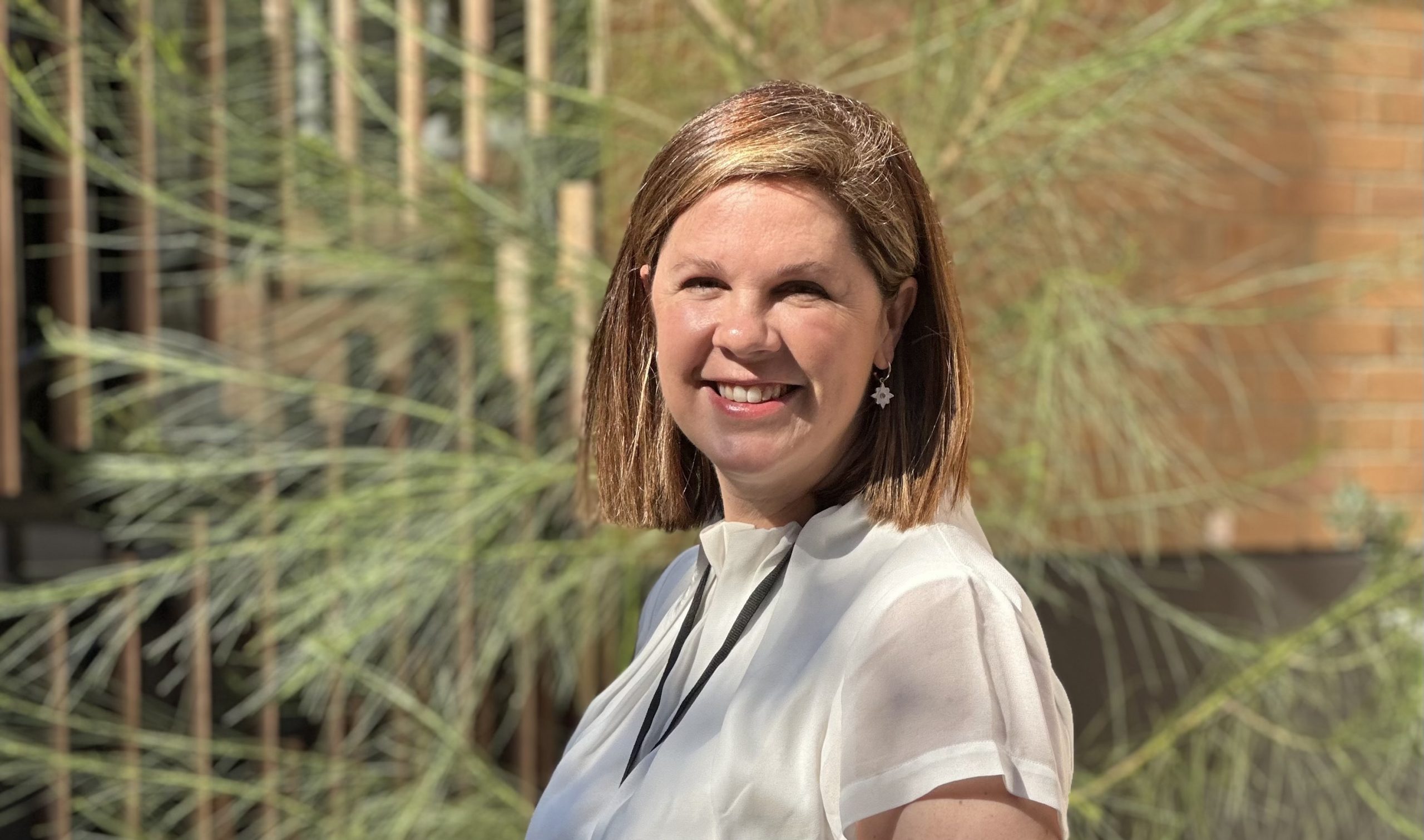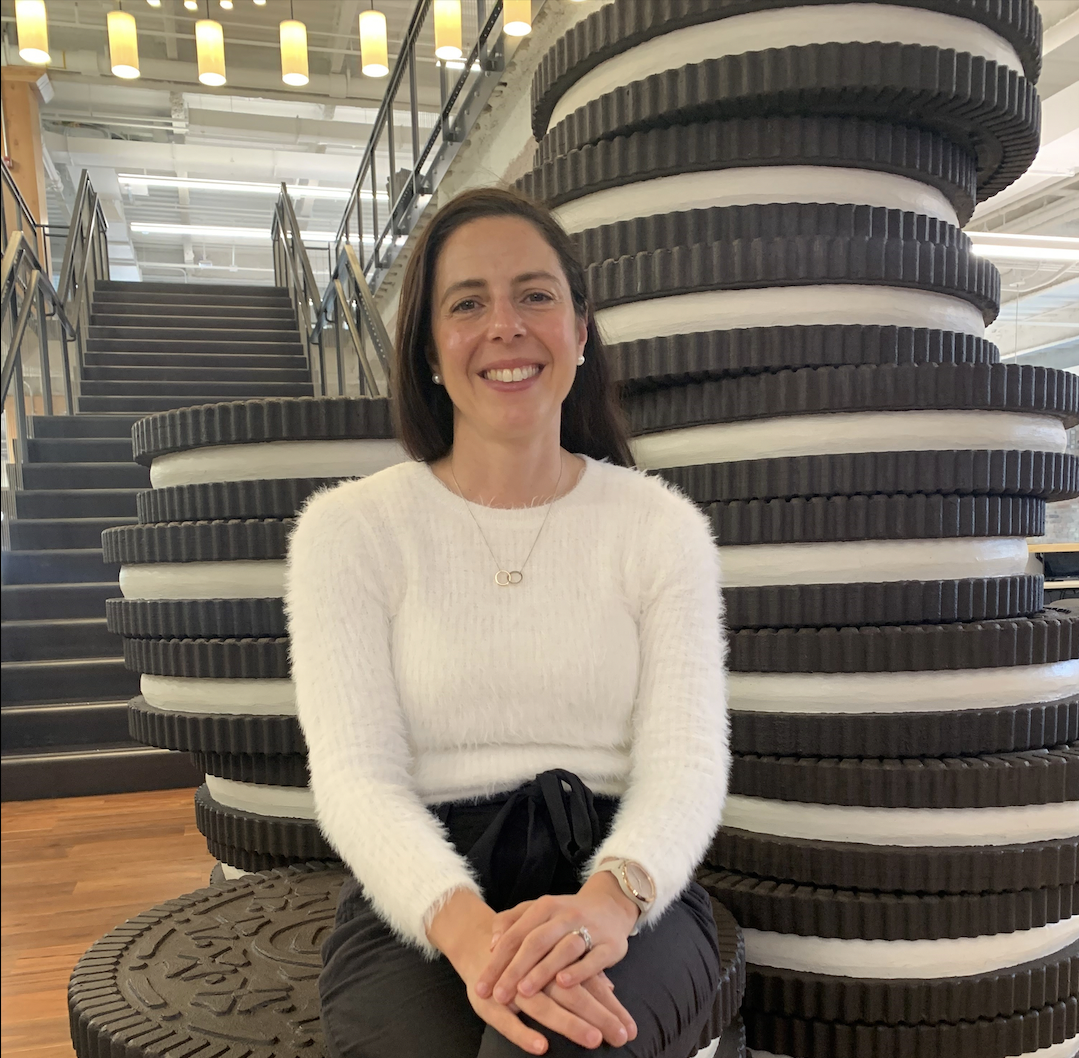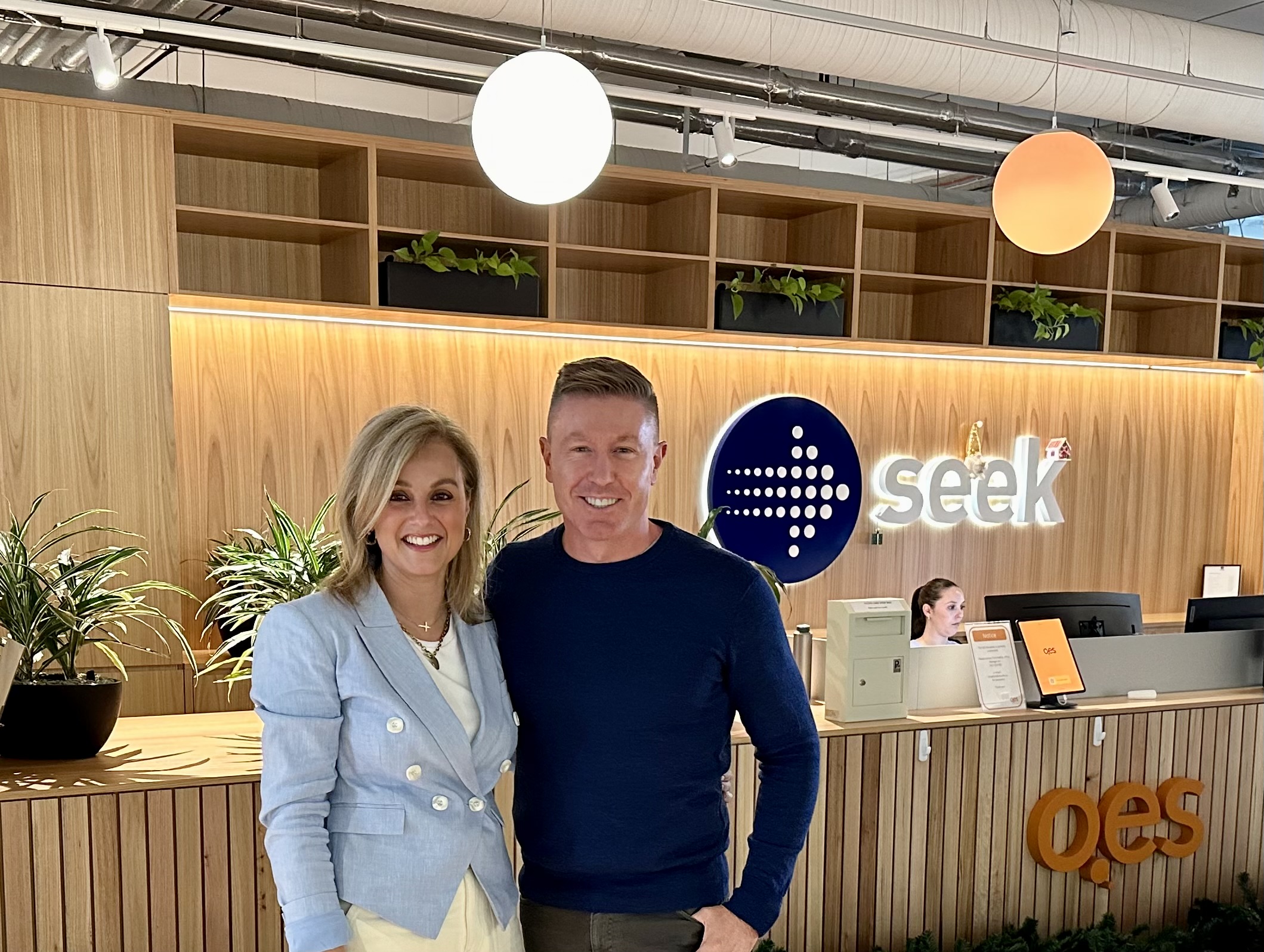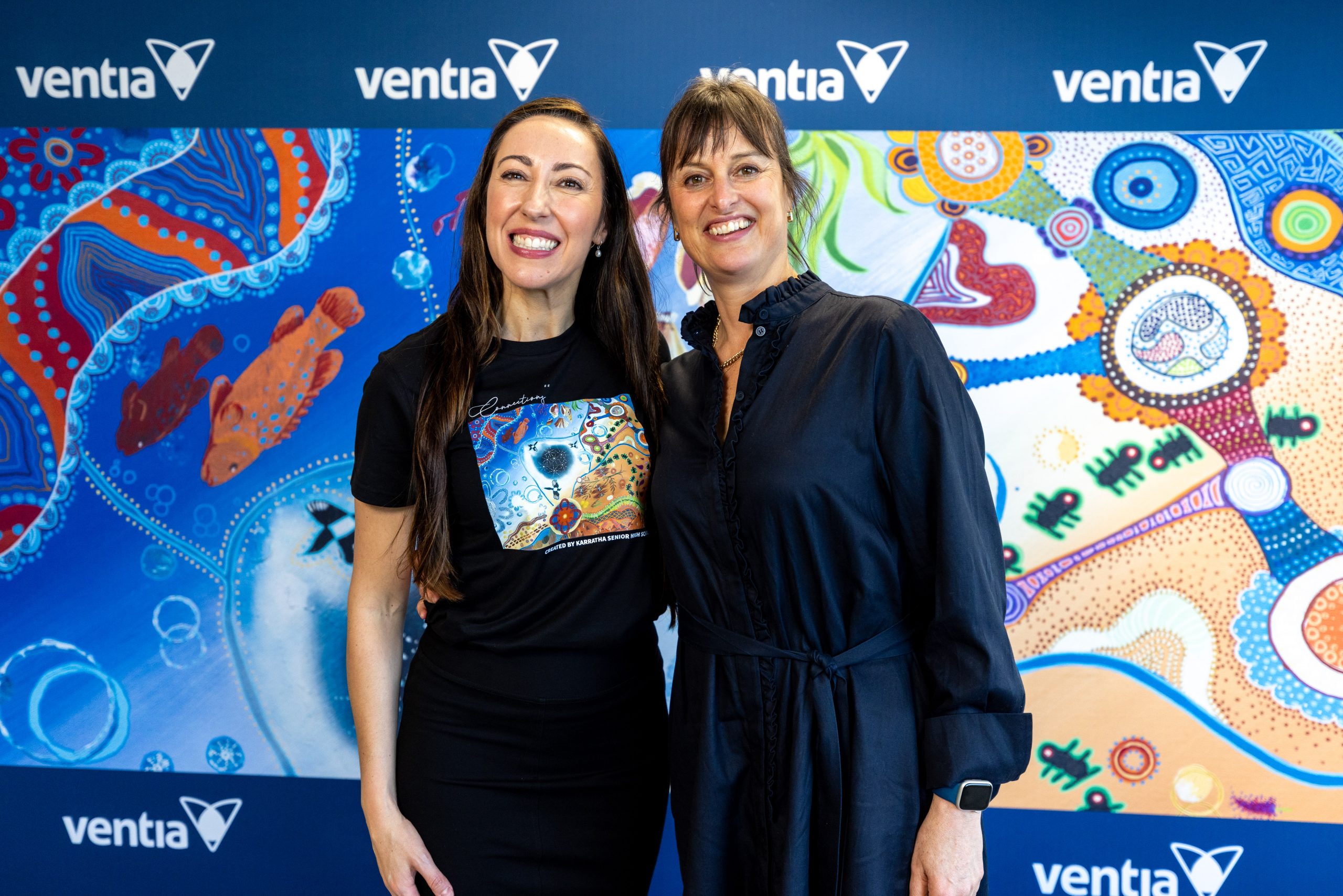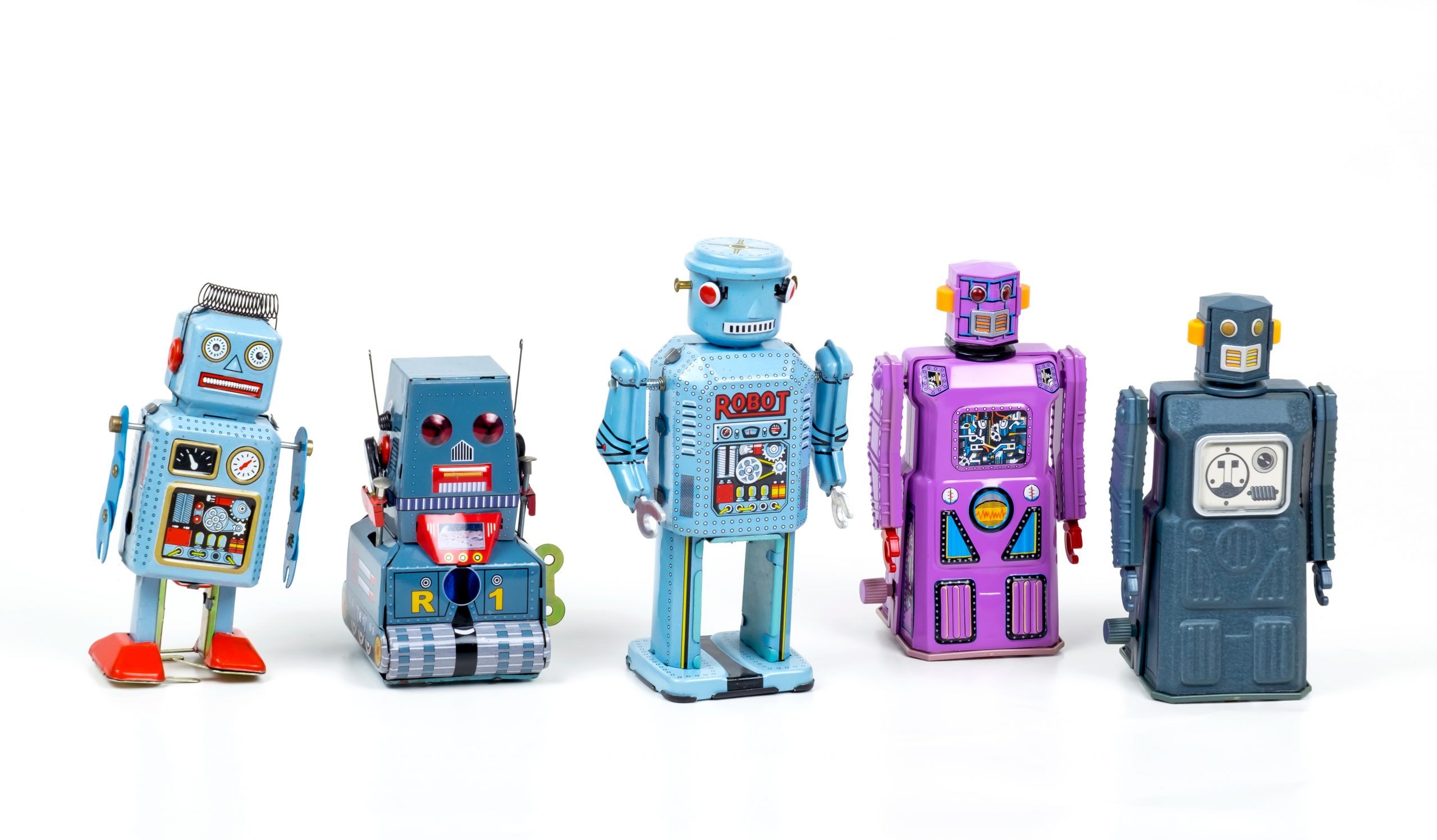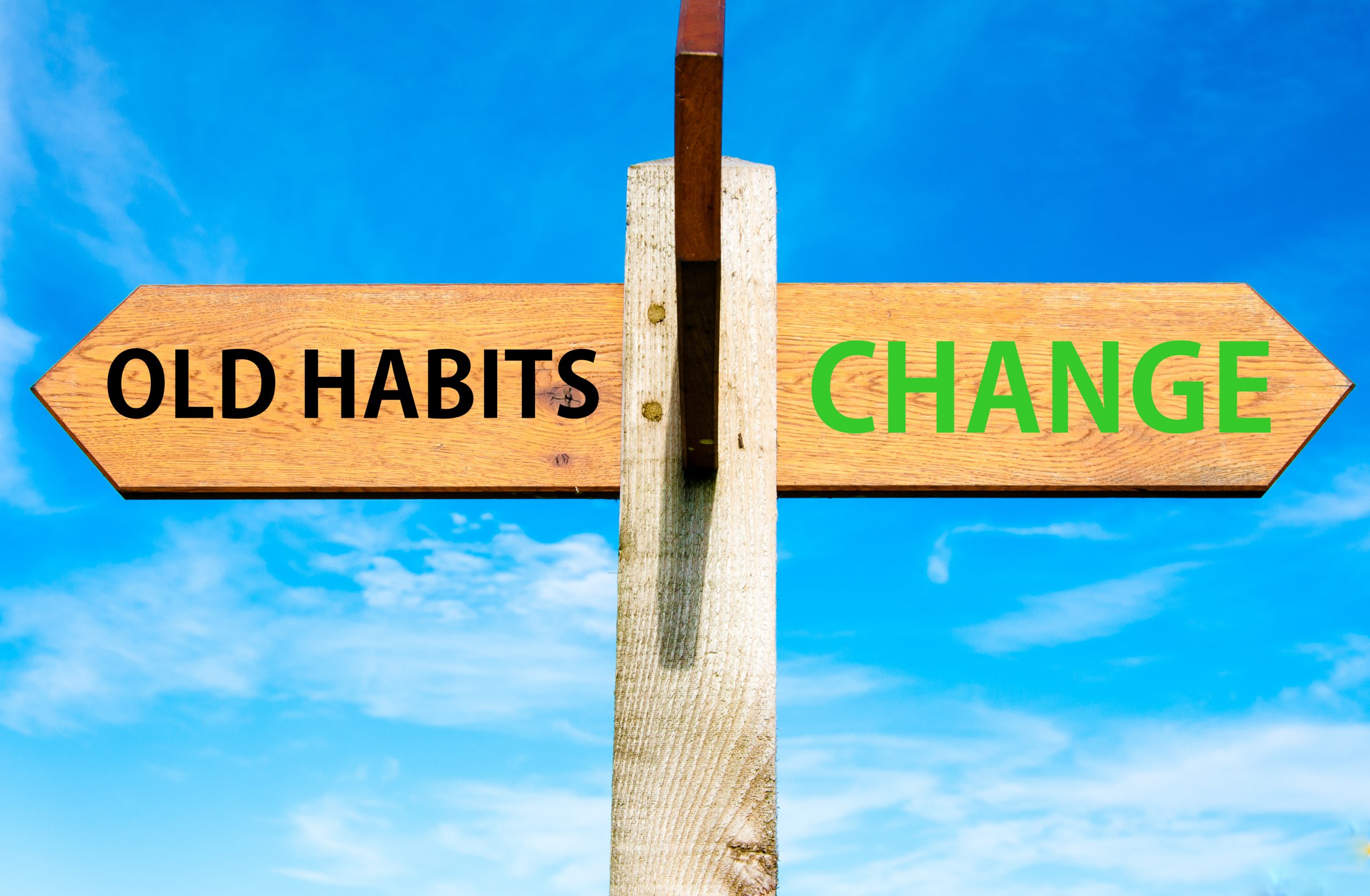Steph has been with the business – that proudly owns iconic brands such as Cadbury, Oreo, Ritz and Philadelphia – for the past 13 years. She’s taken on five different roles during that time and is in the sixth year of her current role.
Meetings with Steph usually start, or end, with her handing you some chocolate. After all, she’s passionate about her company’s brands and likes to share the joy. Not that meetings with her need sweetening. You’d be pushed to meet a lovelier person, or one more switched on and passionate about good comms.
One Tribe has been working with Steph regularly over the past few years, after a mutual former colleague and friend (thank you Lainie Kirk) put us in touch.
Steph has some serious comms chops, so it was an absolute pleasure to spend some time chatting with her on the state of comms today. And what shone brightest at the heart of her insights? Her crystal clear belief that when it comes to successful communication, nothing is more critical than connection and authenticity.
Bianca: So, how did you find yourself in comms?
Steph: Comms was not a planned career path for me. Sport has always been my passion, so I actually studied Sports Management and Marketing at university. After graduating, I worked at an AFL club but quickly found that the sports industry wasn’t the right scene, or right cultural fit, for me. After a stint there, I went into community sport, working at a local council on sports planning and policy and community engagement. It was there that I discovered my love of community engagement and government relations.
So, I went back to university and did my Graduate Diploma in Public Relations at RMIT. After that, I worked at the Pharmacy Guild, where I got to do a lot more face-to-face community engagement and government relations. After that, I had a big change of scene – and pace – moving to Metlink working in media relations, internal comms and crisis management. It was great to understand the critical role public transport plays in a community. The pace was gruelling: early starts due to very early print deadlines and a very challenging public interface. After that, I moved onto Kraft Foods (after it purchased Cadbury) which then became Mondelēz, and the rest is history.
Bianca: Thirteen years is a good stint in any business. What’s kept you at Mondelēz?
Steph: The amount of change and diversity of work has kept me interested and challenged. A new strategy can feel like a new business can’t it? And change presents such fabulous communications challenges for us comms professionals. It’s been a career highlight for me to experience so much of that on a large scale here. From acquisitions, restructures, factory closures and transformation projects, I’ve worked on so many varied and challenging things here. Plus, the culture is a really good fit for me.
Bianca: How much do you think has changed in the comms industry over the course of your career?
Steph: So much. Back when I started out, fax newsletters were big! Now, with the explosion of new tech, people are sourcing and absorbing their news in completely different ways. We need to constantly evolve to keep up – no two days are ever the same.
In terms of internal communications, the biggest shift I’ve observed is that it used to be so formal; something to be taken very seriously because it came from the top down. The CEO newsletter was gospel. Now – thankfully – formality is looked down on. People don’t necessarily value a newsletter as much as they do a regular, informal walk by from their CEO. They prefer to get important news from trusted stakeholders just in time rather than in a formal newsletter. This is why we don’t go into our factories anymore with formal presentations. We go in and have open, unstructured dialogue, so we can follow where people’s passions lie.
People crave authenticity. They’re more empowered now. They have a voice and play a part in internal communication more so than ever before. COVID has only amplified this shift in terms of what people expect from internal communication and how they want to connect.
Bianca: What’s the biggest change you’ve seen since COVID and how do you manage that as a comms professional?
Steph: That people are more ruthless about who they spend their time with and how. People need a compelling reason to come into the office. Since we’re the function that helps people connect again, we’ve needed to be very mindful of this shift.
Pre-COVID, we’d hold regular events and get okay attendance. Post-COVID, regular events just won’t work. People are too choosy about what they’ll come in for. Now, we need to focus on fewer things, reduced frequency and more depth. We’ve moved from getting okay attendance at multiple events to outstanding attendance at fewer events; and the impact is so much better.
Recently, we held an MND event and we had a huge turnout and excellent engagement. I think this speaks volumes about how people expect so much more from work now. It’s not just about giving people information anymore; it’s about creating a feeling, helping them to feel connected to something more.
In general, I think employees are more empowered now and they have a different drive for why and how they work. Years ago, family was okay to put second to work; not anymore. Now, life is number one, and work can sit at two or three. Now work needs to fit around life, rather than life fitting around work. That only accelerated during COVID; I think it helped people to realise what was most important.
People want more than a job. They want an experience. They want to know that the business they work for is authentic about doing good things; about trying to build a better world. We saw this in action recently at our Commercial conference, where we focused mainly on the good we’re doing on the sustainability front. Engagement was high because people could feel connected to something more.
Bianca: You mentioned authenticity earlier and how it’s more important to people than ever. How do you see the role of AI impacting that?
Steph: AI can be an incredible support tool. I’m using tools like Microsoft Copilot and it’s amazing. But it’s more like a comms assistant for me. We’re trying to build trust, authenticity and human connection, so I guess it’s a question of: when is robots talking to one another okay? We’re trying to tap into how people feel and I don’t see AI being helpful with that. There will be many things it will be great at, but we need to stay focused on being authentic and connecting from human to human now more than ever.
Bianca: If you could re-connect with that young girl studying Sports Management and Marketing at university, what would you tell her?
Steph: That your career path may not be linear; and your hobbies don’t have to translate to your career. You won’t end up working in sport, but you’ll end up working in a business that’s passionate about supporting sport and authentic about elevating women’s role in it. One day, you’ll even announce a multi-million dollar partnership with the AFL: for women playing Aussie Rules! Who would’ve thought it?
A big thank you to Steph for taking the time to talk with us. It’s no surprise that the chat was authentic and insightful. If your path ever crosses Steph’s, take the time to say hello to her. She is warm, kind and clever; oh and did we mention she has chocolate?

